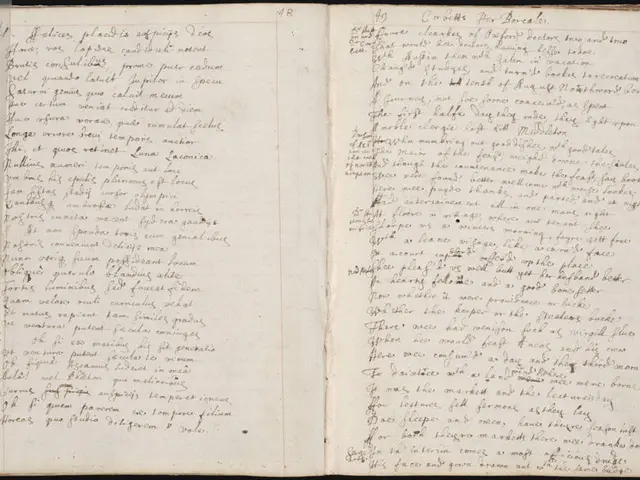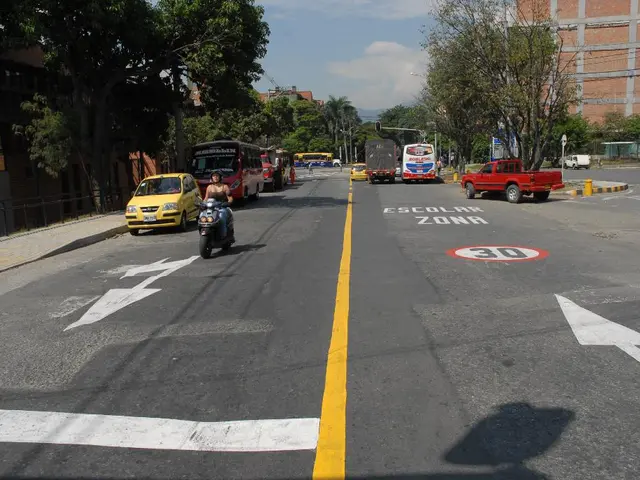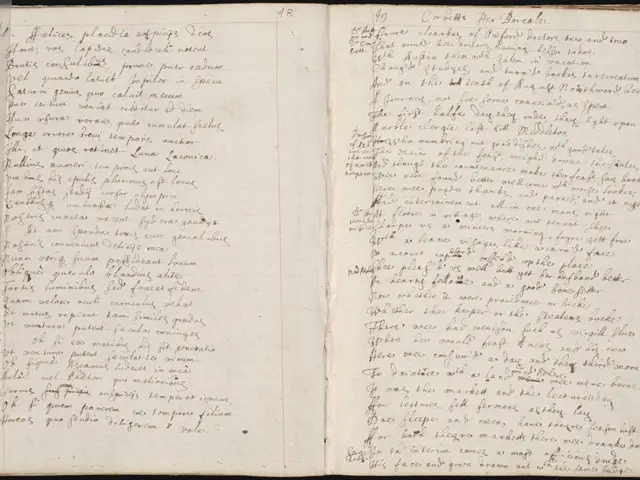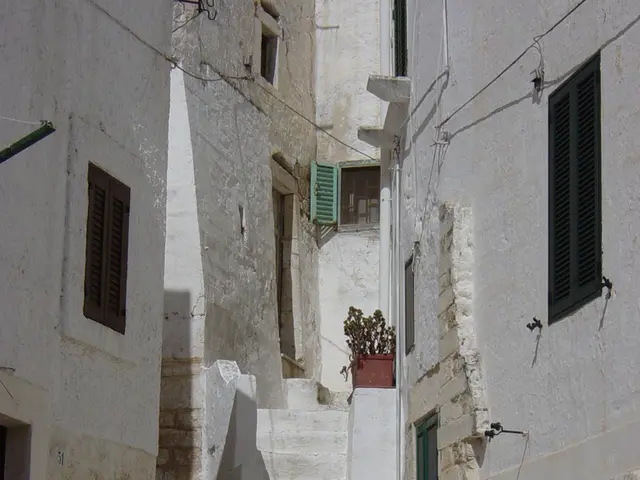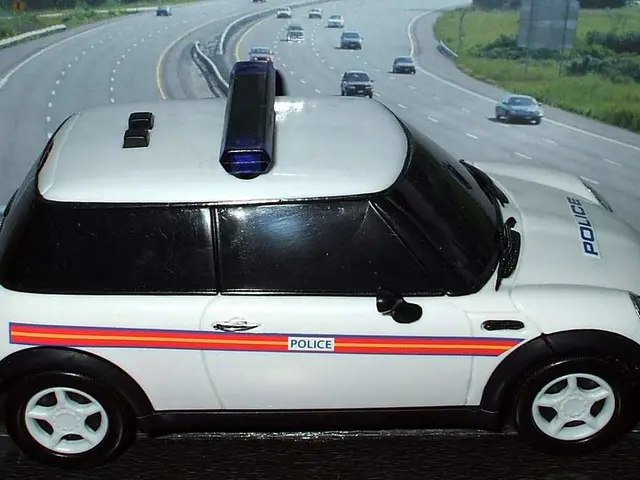Confidential Report: Jade Shone vs. City of Tempe and Zachary Hyde
In the heart of Arizona, the case of Jade Shone vs. Tempe Police Department and Officer Zachary Hyde shines a spotlight on the importance of emergency driving protocols for cops. In this gritty, real-life drama, Shone was on a usual drive on Dobson Road and Broadway, Mesa, when she was T-boned by Hyde, who was speeding through a red light in his police cruiser, responding to an emergency call.
The results were catastrophic. Jade Shone suffered severe injuries, and she tragically lost her unborn daughter, Isla. Now, Shone's suing the heavens out of the City of Tempe and Officer Hyde, claiming plain-as-day negligence and wrongful death.
Let's dig a little deeper into this incredible story. On that fateful night, Shone was cruising northbound with the green light, while Hyde barreled into the intersection, ignoring traffic and giving other drivers hardly any warning. By the time Hyde activated his sirens, it was already too late. Witnesses reported that the officer's vehicle was moving at a blinding speed, making it hard for drivers to react.
Shone's lawsuit against the City of Tempe and Officer Hyde hinges on two main points: negligence and wrongful death. To prove negligence, Shone needs to demonstrate that Hyde failed to exercise the required standard of care when driving his emergency vehicle. To do this, she's pointing at Arizona Revised Statutes § 28-624, which says that while cops can break traffic rules in emergencies, they must still do things safely and keep public safety in mind. Unfortunately for Shone, proving negligence in this instance could be tricky because courts in Arizona have set a high bar, calling for proof of reckless disregard, meaning Hyde consciously decided to ignore substantial risks to public safety, such as driving at reckless speed and failing to give sufficient warning.
The wrongful death claim is another beast altogether. Arizona law allows wrongful death lawsuits for the loss of a viable fetus, which typically happens around the 24-week mark of pregnancy. Given that Shone was about five months pregnant, it makes the validity of this claim a bit tricky. Medical experts will likely have a say in this case, determining whether Isla was viable.
So, what about Officer Hyde and the City of Tempe? The city could face vicarious liability under the doctrine of respondeat superior, meaning if Hyde's actions were reckless and within the scope of his employment, Tempe might be held accountable. Arizona doesn't spare municipalities entirely, holding them liable for their employees' gross negligence or recklessness. However, the city could also be directly liable if they failed to properly train or supervise Hyde, leading to his questionable actions.
The ethical Takeaway from this harrowing tale: society entrusts cops with significant discretion during emergency responses, expecting them to strike the perfect balance between swift action and public safety. Incidents like the one involving Jade Shone remind us of the crucial need for strong, clear guidelines and accountability systems to limit recklessness without hindering essential emergency responses.
In the end, this lawsuit could have massive implications for police accountability and public policy in Arizona. The final outcome will depend on whether Officer Hyde's driving was reckless or not in this emergency situation. One thing's for sure—this case serves as a stark reminder that the actions cops take during emergencies can be brutal and life-changing, highlighting the importance of clear, stringent emergency driving protocols.
If you're in the mist of a nasty car accident in Tempe, consider talking to a local car accident attorney to help sort things out. They'll give you solid advice and guide you through the legal jungle.
- The case of Jade Shone versus the Tempe Police Department and Officer Zachary Hyde sheds light on the significance of emergency driving policies for law enforcement in the context of general news, politics, crime and justice, and car accidents.
- As the lawsuit against Officer Hyde and the City of Tempe progresses, it may shape policy-and-legislation pertaining to emergency driving procedures for cops in Arizona, potentially affecting sports communities as well, given the broader implications for public safety.
- In discussing the case, it's important to consider the critics' arguments that officers should follow clear, stringent guidelines to minimize recklessness in emergency situations, which could prevent future accidents and thereby impact the sports and general-news segments.

